
Vertiva 16mg Tablet
Manufacturer
Manig Pharma
Salt Composition
Betahistine (16mg)
Key Information
Short Description
Vertiva 16mg Tablet is used to prevent and treat a disorder of the inner ear known as Ménière’s disease, which includes symptoms such as dizziness (vertigo), ringing in the ears (tinnitus), and loss of hearing, probably caused by fluid in the ear.
Dosage Form
Tablet
Introduction
Vertiva 16mg Tablet should be swallowed whole with water and taken at the same time(s) each day to get the most benefit. Your doctor will decide what is the correct dose to relieve your symptoms and how often you need to take it. You may need to take this medicine for several months and you should take it for as long as prescribed by your doctor even if you start feeling better. The most common side effects include headache, feeling sick, and indigestion (dyspepsia). You may also get stomach pain and bloating. Taking the medicine with food can help reduce stomach problems.
Directions for Use
Take this medicine in the dose and duration as advised by your doctor. Swallow it as a whole. Do not chew, crush or break it. Vertiva 16mg Tablet may be taken with or without food but it is better to take it at a fixed time.
Safety Information
Side Effects
No common side effects listed.
Alcohol Warning
Consuming alcohol with Vertiva 16mg Tablet does not cause any harmful side effects.
Breastfeeding Warning
Vertiva 16mg Tablet is probably unsafe to use during breastfeeding. Limited human data suggests that the drug may pass into the breastmilk and harm the baby.
Pregnancy Warning
Vertiva 16mg Tablet may be unsafe to use during pregnancy. Although there are limited studies in humans, animal studies have shown harmful effects on the developing baby. Your doctor will weigh the benefits and any potential risks before prescribing it to you. Please consult your doctor.
Interacting Medicines
Astemizole Azelastine Buclizine Cetirizine
How it works
Vertiva 16mg Tablet is a histamine analog. It works by improving the blood flow in the inner ear which reduces the pressure of excess fluid there. Excess fluid can send signals to the brain causing nausea, dizziness or spinning sensations (symptoms of Ménière's disease). Vertiva 16mg Tablet additionally dampens down the nerve signals sent from the inner ear to the brain relieving the symptoms of Ménière's disease.
Quick Tips
You have been prescribed Vertiva 16mg Tablet to relieve vertigo (dizziness) hearing problems and tinnitus (noise in the ear) associated with Ménière's disease. It can only decrease the number and severity of attacks but may not completely stop them. Taking it with food can help reduce stomach problems. Take it at the same time each day to maintain a steady amount of the medicine in your body. Inform your doctor if you have a history of stomach ulcer, asthma, or low blood pressure.
Related Medicines
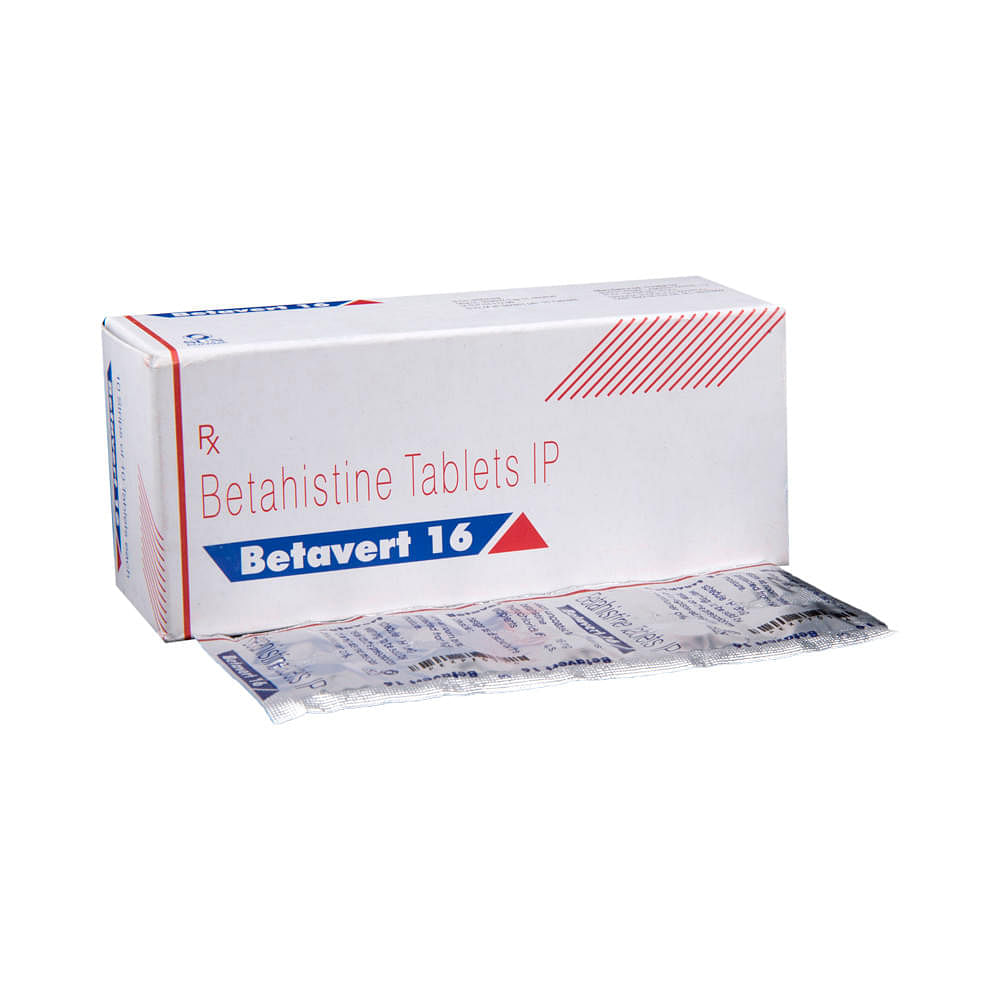
Betavert 16 Tablet
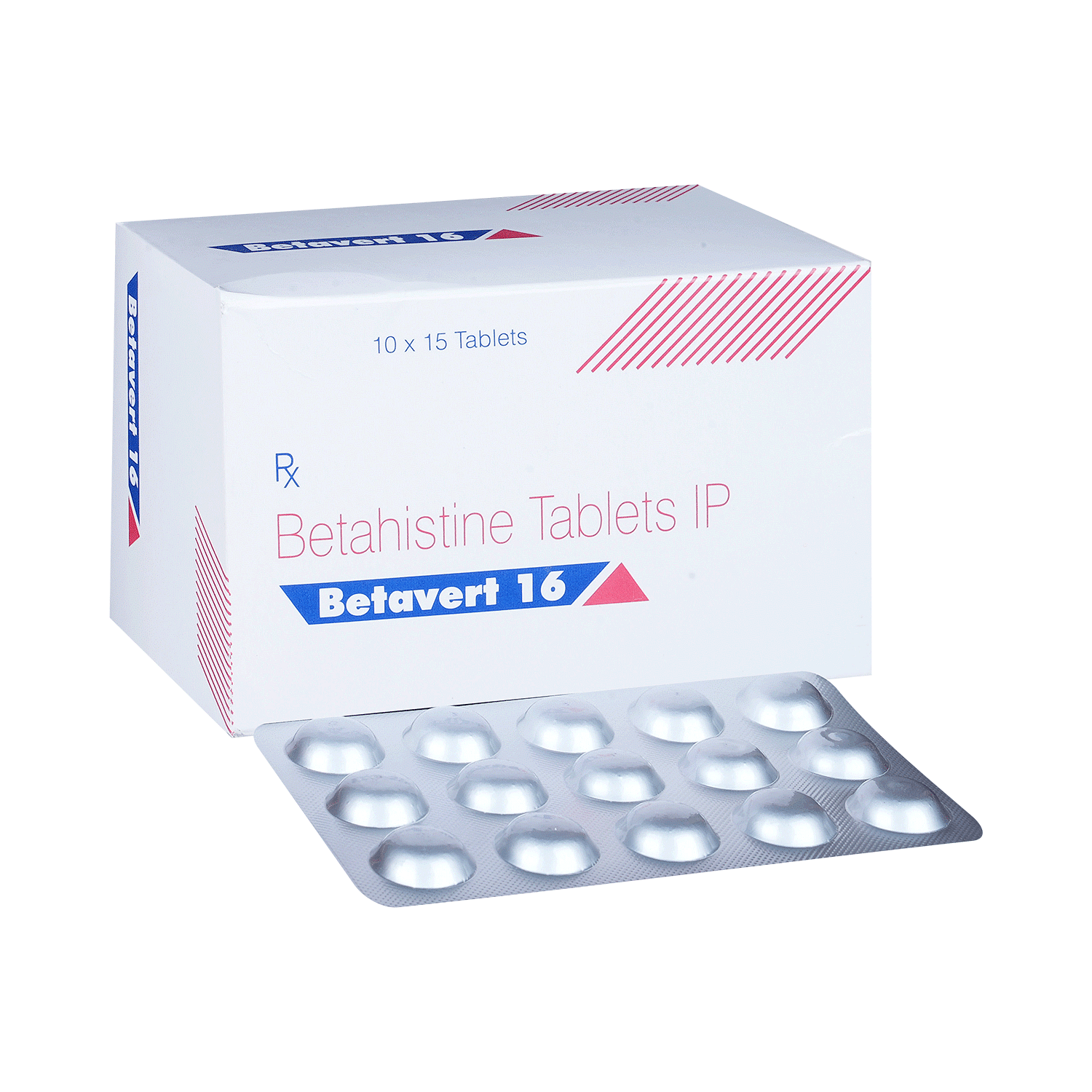
Betavert 16 Tablet
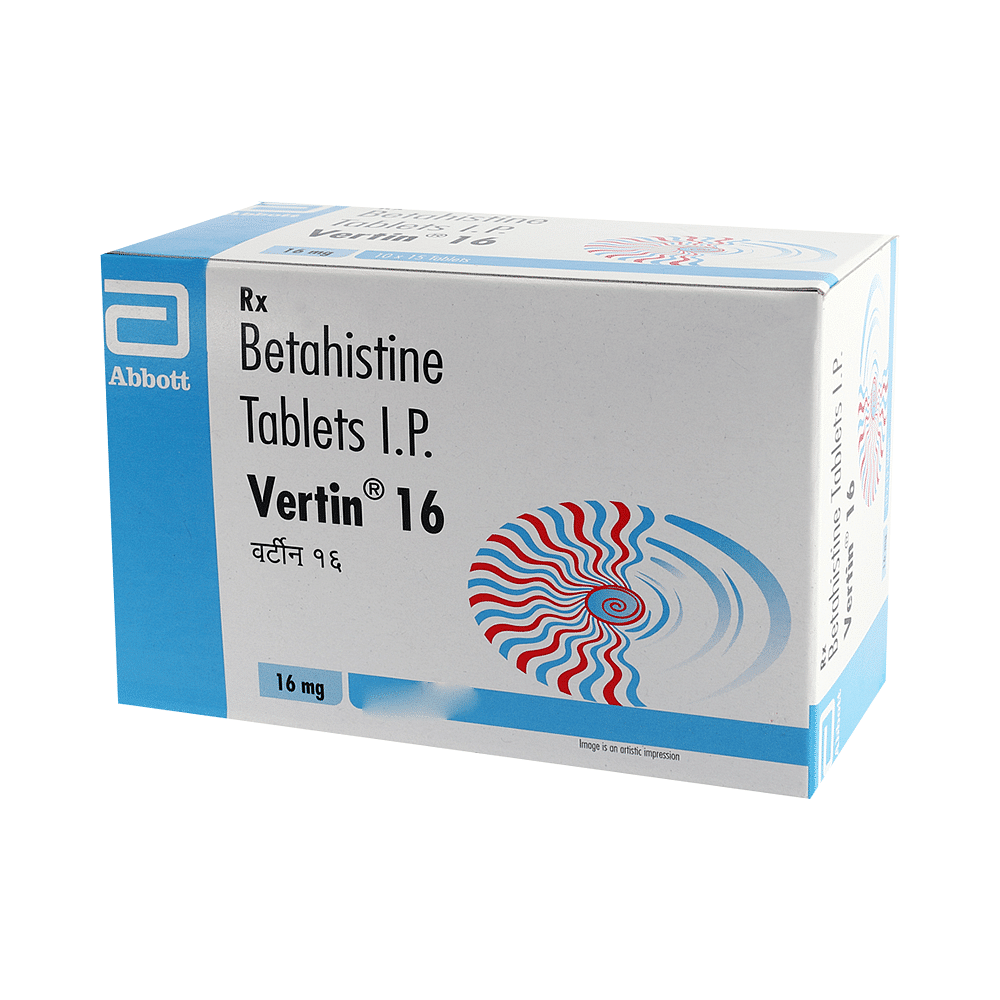
Vertin 16 Tablet
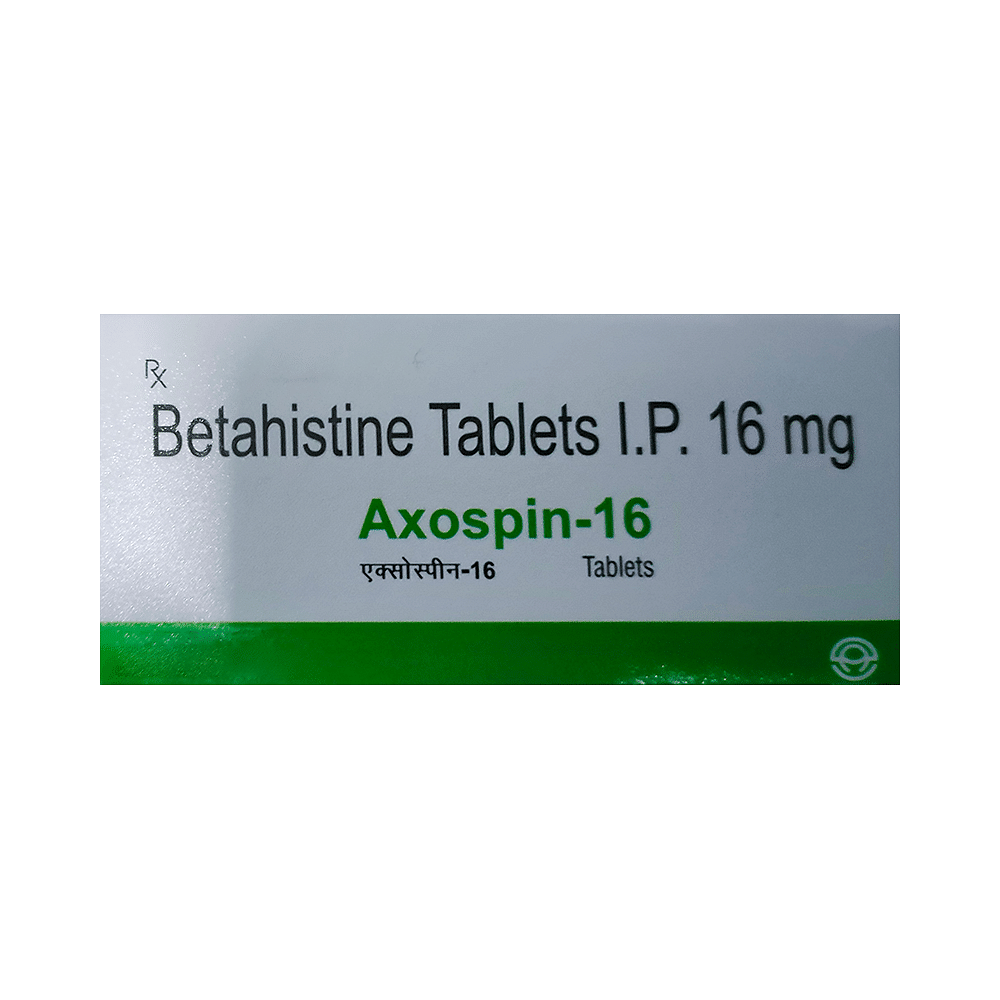
Axospin 16 Tablet

Vertico 16mg Tablet
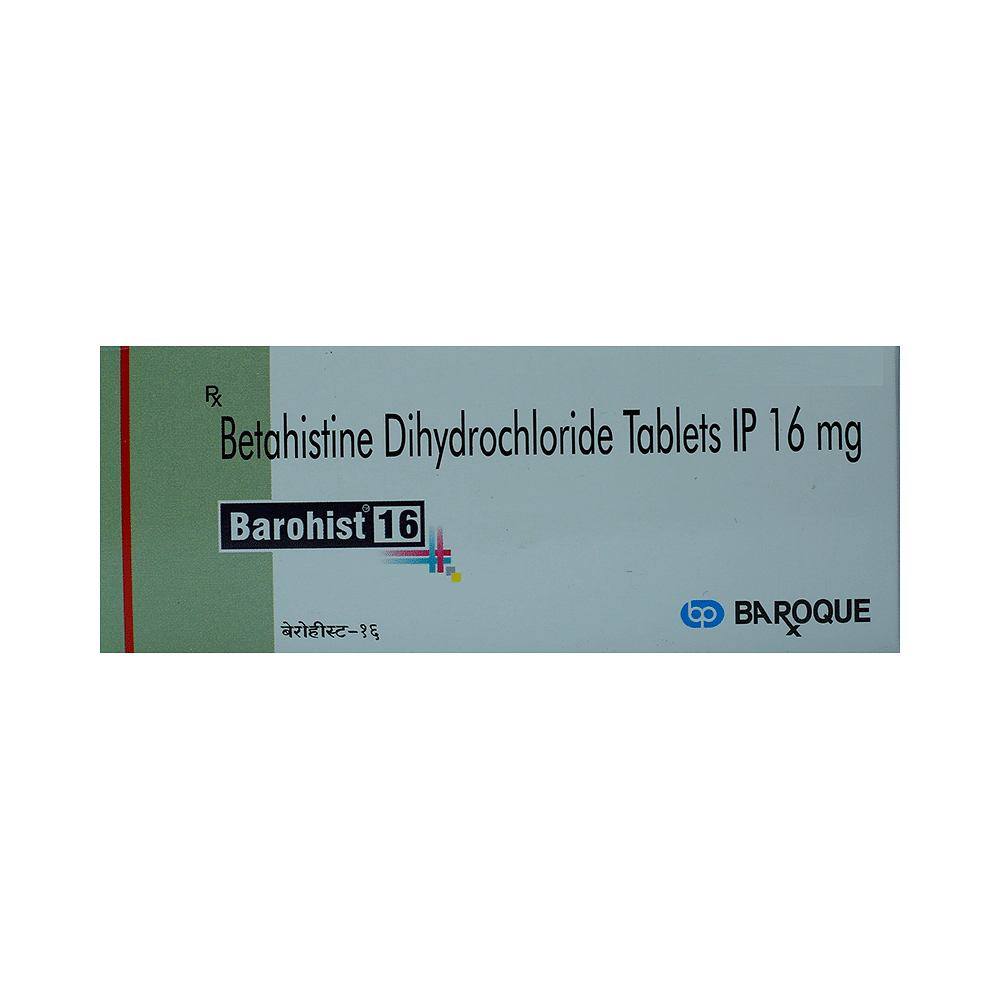
Barohist 16 Tablet

Myvert 16mg Tablet

Naxivert 16mg Tablet

Teggo 16mg Tablet

Govert 16mg Tablet
Frequently asked questions
What is Meniere's disease, and does it go away?
Meniere's disease is a disorder affecting the balance and hearing organs in the inner ear, causing symptoms like vertigo, fluctuations in hearing, tinnitus, pressure in the ears, dizziness, nausea, and vomiting. Treatment depends on individual factors, so discuss your case with your doctor to determine the best approach.
Is Vertiva 16mg Tablet effective?
Vertiva 16mg Tablet is effective when used as directed by your doctor. It's essential not to stop taking it even if you see improvement, as symptoms may return or worsen if treatment is discontinued prematurely.
What triggers Meniere's disease?
Meniere's disease can be triggered by conditions like stress, overwork, fatigue, emotional distress, additional illnesses, and pressure changes. Certain foods such as dairy products, caffeine, alcohol, and high-sodium foods may also trigger the condition.
What if I forget to take a dose of Vertiva 16mg Tablet?
If you miss a dose of Vertiva 16mg Tablet, take it as soon as you remember. If it's almost time for your next dose, skip the missed one and continue with the scheduled dosing regimen. Avoid doubling the dose to make up for the missed one, as this may increase side effects.
Is stress a reason for vertigo?
Yes, mental stress can trigger vertigo. It can exacerbate many forms of vertigo but will not cause it on its own.
What causes vertigo?
Vertigo may be caused by sudden drops in blood pressure or dehydration. Many people feel lightheaded when standing up too quickly from sitting or lying down. Motion sickness, certain medications, and inner ear problems (Meniere's disease, acoustic neuroma) can also cause vertigo. In some cases, it may be a symptom of other disorders like multiple sclerosis or head trauma.
How long should Vertiva 16mg Tablet be taken?
The duration of treatment with Vertiva 16mg Tablet varies from patient to patient. Some people respond quickly, while others may take more time. It's essential to take the tablets regularly and wait for results patiently. Consult your doctor if unsure.
What are common side effects of Vertiva 16mg Tablet?
Vertiva 16mg Tablet can cause mild stomach problems like vomiting, stomach pain, abdominal distension, and bloating. Taking the tablet with food may help reduce these side effects, but it might also decrease absorption.
Is Vertiva 16mg Tablet effective?
Vertiva 16mg Tablet is effective when used in the dose and duration advised by your doctor. It's essential not to stop taking it even if you see improvement, as symptoms may return or worsen if treatment is discontinued prematurely.
What if I forget to take a dose of Vertiva 16mg Tablet?
If you miss a dose of Vertiva 16mg Tablet, take it as soon as you remember. If it's almost time for your next dose, skip the missed one and continue with the scheduled dosing regimen. Avoid doubling the dose to make up for the missed one, as this may increase side effects.
How long should Vertiva 16mg Tablet be taken?
The duration of treatment with Vertiva 16mg Tablet varies from patient to patient. Some people respond quickly, while others may take more time. It's essential to take the tablets regularly and wait for results patiently. Consult your doctor if unsure.


